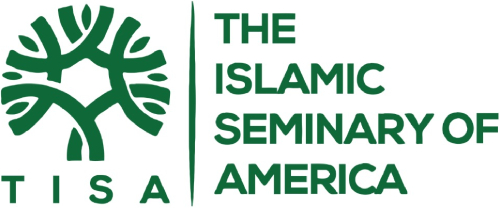The Dialogue of Abrahamic Faiths Course, hosted by the Washington Theological Consortium and the International Institute of Islamic Thought at United Lutheran Seminary in Philadelphia, was an enriching learning experience. As a skeptic of interfaith and its goals, this course allowed me to apply the critical thinking and exercises in empathy that I learned at The Islamic Seminary of America. A valuable takeaway that I came back with was what I believe to be the difference between Shahādah and Daʾwah. To me, interfaith represents an opportunity to practice and renew one’s Shahādah, or testimony of faith, whereas Daʾwah is more about calling others to the faith. The Dialogue of Abrahamic Faiths Course provided a space where I, as a Muslim in the West, could openly share my beliefs with Jewish and Christian seminarians without sanitizing my beliefs. It is because of this opportunity to unapologetically proclaim my faith to Jews, Christians, and Muslims that I equate interfaith as a chance to renew one’s Shahādah.
The course spanned six days, starting on a Tuesday, and was strategically designed to bring together seminarians from different Abrahamic faith traditions to live and learn together. Each day consisted of 4-5 hours of lectures, 1-2 hours of activities, and multiple shared meals. These meals provided a space to engage with classmates and teachers, allowing us to learn more about each other. Many passionate conversations were held during these meals, and faith-based bonds of brotherhood and sisterhood were developed in that space. It was heartening to have emotionally charged formal discussions in class and then return to an informal setting over bread, realizing that even when two people feel strongly about something core to their identities, they can still eat, laugh, and live together.
Throughout the six days, our “shepherds,” including Dr. Sandra Collins, Dr. Ori Soltes, Dr. Gulsum Kucuksari, and Dr. Larry Goleman, moderated in-class discussions and activities, and they also joined us outside the classroom for meals and conversations. The curriculum was well-crafted, exposing students to various aspects of each faith tradition. Lectures and sessions covered topics such as revelation and interpretation, unique art styles and patterns associated with Jewish, Christian, and Muslim communities and cultures, mysticism and spirituality within these groups, and contemporary issues. In addition to theory, Friday, Saturday, and Sunday were dedicated to visiting local mosques, synagogues, and churches to immerse ourselves in the rituals of each tradition on their respective days of worship.
Among the many objectives of the course, perhaps the ultimate goal can be summarized as outlined in the syllabus: “To build skills in interfaith leadership and collegiality that will enable collaboration in the future.” I believe the course successfully achieved this goal, and I would recommend it to TISA students if offered again in the future. I would especially recommend this course to students who are nearing the end of their degree programs, as their participation would enrich the experience and dialogue for both themselves and their cohorts.


